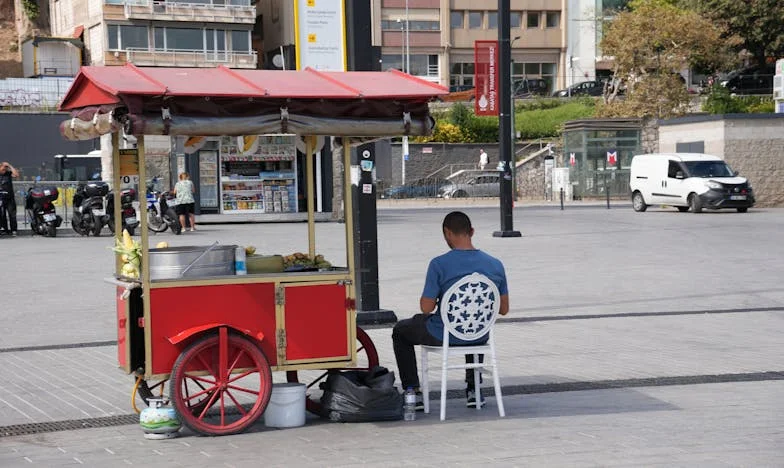Our Battle for a Home: Living Under One Roof with My Husband’s Mother
“You left the bread open again.” Linda’s voice cuts through the kitchen like a knife. It’s 6:45 am, and I’m stumbling into the kitchen for coffee, my hair a mess and my eyes barely open.
Mark’s not there—he’s left for his early shift at the hospital. It’s just me and Linda, again, sharing the same silence, the same kitchen, the same suffocating air. I grip my mug, willing myself to ignore her, but the words are out before I can stop them. “Sorry, Linda. I’ll put it away.”
She sighs, a sound heavy with judgment. “It’s the little things, Jenna. That’s how a home stays together.”
I wanted to scream that this was not my home, that I was a guest in her museum of doilies and faded family photos. Instead, I watched the coffee swirl and wondered how long before I could breathe in my own space.
When Mark and I married three years ago, our student loans and his mother’s failing health made moving in with her the only option. “Just for a year,” he promised. But a year stretched into three, and what started as a temporary solution became a daily battle for the smallest scraps of independence.
Linda never missed a chance to remind me that this was her house. “In my kitchen, we don’t use garlic powder. Only fresh garlic,” she declared the first week, tossing my spice jars into a box. She’d rearrange my clothes in the laundry, fold Mark’s shirts the “right way,” and leave notes about turning off the porch light.
Mark tried to keep the peace. “She’s just set in her ways, Jen,” he’d say, rubbing my back as I cried in our tiny bedroom, the only place that felt even remotely like ours. “She means well.”
But it wasn’t just the routines. It was the way Linda would burst into our room without knocking, the way she’d sit between us on the couch, or ask Mark if he wanted her pot roast instead of my sad attempts at dinner. It was the subtle cuts: “You know, Mark always liked my mashed potatoes better,” or “Are you sure you’re up for handling the bills, Jenna?”
One night, after a particularly brutal argument over how I’d loaded the dishwasher, I snapped. “Why does it matter so much? Why can’t you just let us be?”
Linda stared at me, her face tight. “I’m only trying to help. This is my house, Jenna. I won’t have it falling apart.”
Mark found me in the backyard, sobbing into my coat. “I can’t do this anymore, Mark. I love you, but I’m losing myself here.”
He looked at me, torn. “She needs us, Jen. We can’t just—”
“But what about what we need? What about us?”
Things got worse before they got better. I stopped eating dinner at the table. Mark and I fought, our voices rising behind closed doors. Linda grew colder, her disappointment like a cloud that never lifted. I started staying late at work, finding excuses not to come home. I envied my friends with their tiny apartments and mismatched dishes—freedom, even if it meant ramen noodles every night.
The breaking point came on our third anniversary. Mark and I planned a night out—just the two of us. When we got home, Linda was waiting, arms crossed. “I hope you enjoyed yourselves. I spent the evening alone.”
I lost it. “We need space, Linda. We need to live our own lives.”
She looked at Mark, not me. “Is that what you want?”
Mark hesitated, then took my hand. “Yes, Mom. It’s time.”
The next weeks were a blur of tension and tears. Linda accused me of tearing the family apart. She stopped speaking to me, barely to Mark. But he stood firm: “We’re moving out, Mom. We need to try.”
We found a tiny one-bedroom apartment above a pizza shop. It smelled like garlic and the windows rattled in the wind, but it was ours. The first night, we ate takeout on the floor and laughed about how the shower only ran hot for five minutes.
It wasn’t easy. Linda called every day at first, sometimes crying, sometimes angry. Mark worried constantly about her health and loneliness. We argued about money, about visiting her, about whether we’d made the right choice. But bit by bit, we built something real—a home that belonged to us.
I hung photos on the wall. Mark learned to cook broccoli the way I liked. We fought, but we made up. We learned that love isn’t just about sacrifice—it’s about boundaries, too.
Linda eventually visited. She brought a casserole and criticized the curtains, but she hugged me when she left. It wasn’t perfect, but it was progress.
Sometimes I still feel guilty. Sometimes Mark does, too. But I’ve learned that you can love someone and still need your own space. That asking for room to breathe isn’t betrayal—it’s survival.
Now, when I wake up to sunlight pouring through our window, I think about those years under Linda’s roof—the battles, the tears, the way we almost lost each other. And I wonder: How many couples are out there, struggling to build a life in someone else’s house, afraid to ask for what they really need? Are we selfish for wanting a home of our own—or just human?
